It can be frustrating when the breaker of your auxiliary power unit (APU) keeps tripping. If you own a Carrier APU and its breaker is giving you a headache, you're probably wondering what the problem is. We've researched this topic to help you get to the bottom of it!
Your Carrier APU HVAC breaker can keep tripping due to any of these reasons:
- Low voltage
- Loose wirings
- A broken or weak capacitor
- Faulty breaker
- Overloading
- The compressor is weak
In this post, we will dive into further details about this topic to help you determine the problem's root cause. So, keep reading to learn more about APU and breaker issues. With that said, let's get right into it!
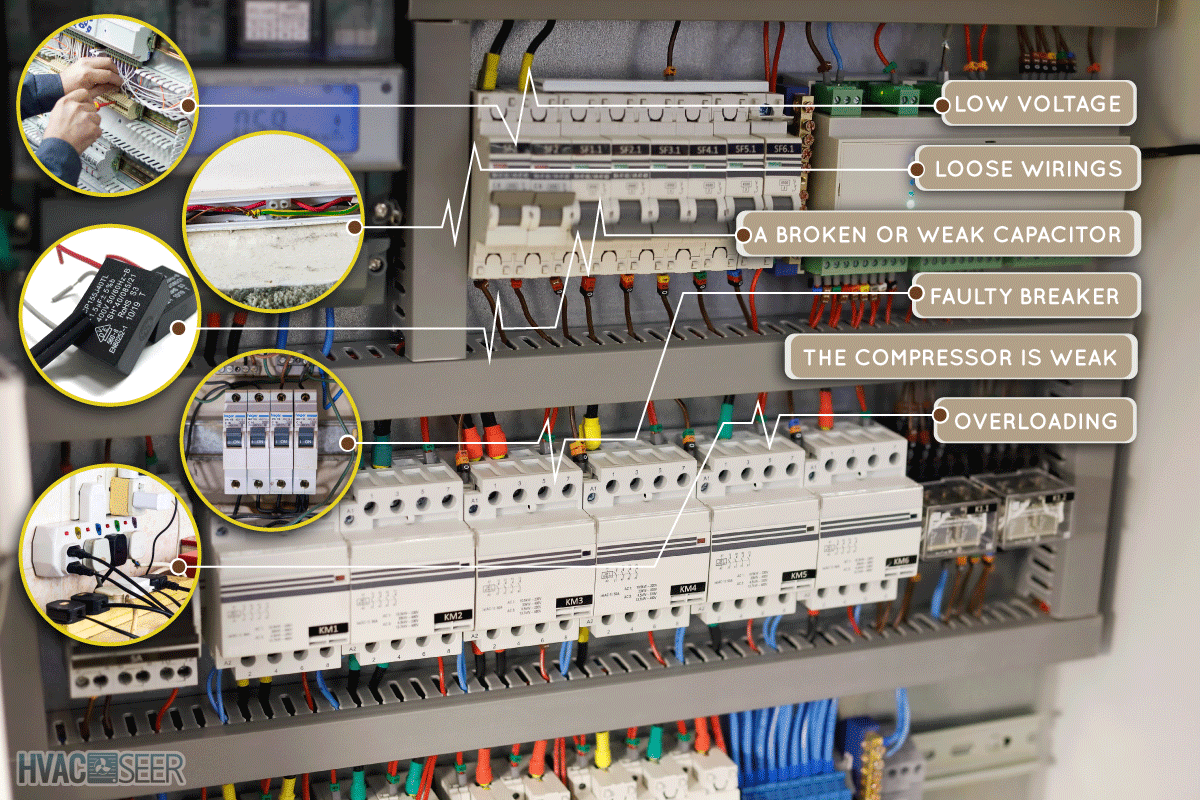
Why Is My Carrier APU HVAC Breaker Tripping?
Carrier APU is a diesel-powered unit trucks use as an additional power source while on the road. This innovative model can provide both cooling and heating needs and can act as a generator to power up the truck's appliances since it has a power plant.
Carrier boasts their APU as budget-friendly for only using 0.2 gallons of diesel every hour. Still, if the unit's breaker is constantly tripping, you won't enjoy its benefits much.
If your Carrier APU's breaker keeps on letting you down, here are some possible reasons and tips we've researched about how you can fix the problem.
Low Voltage
Despite being diesel-powered, just like any other appliance at home, the APU can also experience problems when supplied with low voltage.
When the circuit breaker does not receive the minimum voltage it needs, the breaker will trip to protect the unit from a possible meltdown and system malfunction.
The amperage increases when the voltage decreases; thus, it can cause problems not only for your APU but also for the appliances depending on it for power.
You wouldn't want your appliances and APU to experience low voltage since it can lessen their expected lifespan no matter how carefully you use them.
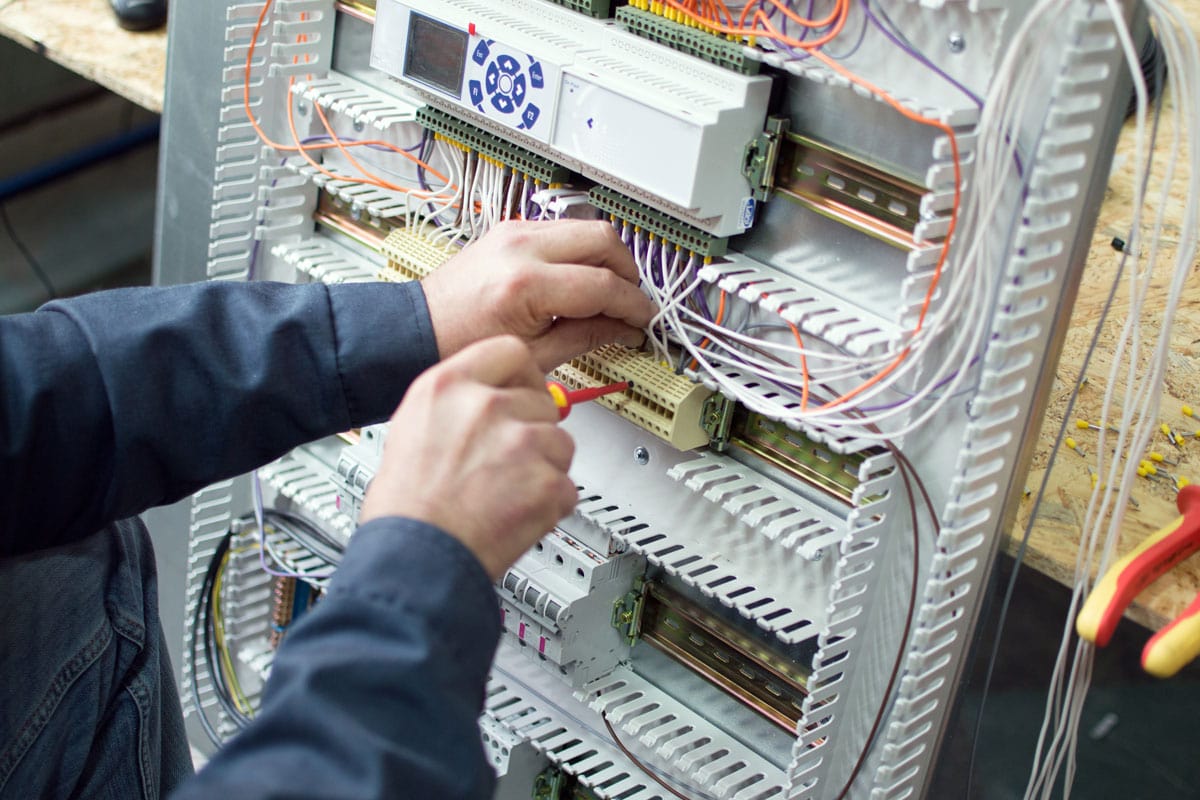
If you are unsure if low voltage is why your circuit breaker trips, you can use a multimeter to see the voltage level of your APU. Once you have investigated and proven that your APU is experiencing low voltage, you can now solve the problem.
It's a good thing there's a voltage stabilizer that can help you fix the issue. A voltage stabilizer is a piece of equipment that can provide the constant voltage level your APU requires to prevent the circuit breaker from constantly tripping.
Check out this voltage stabilizer on Amazon.
Loose Wiring
Another reason your APU's circuit breaker keeps on tripping is loose wiring. When there is an imperfect wiring connection, the wire can create resistance that causes heat in the system, thus burning the nearby wires.
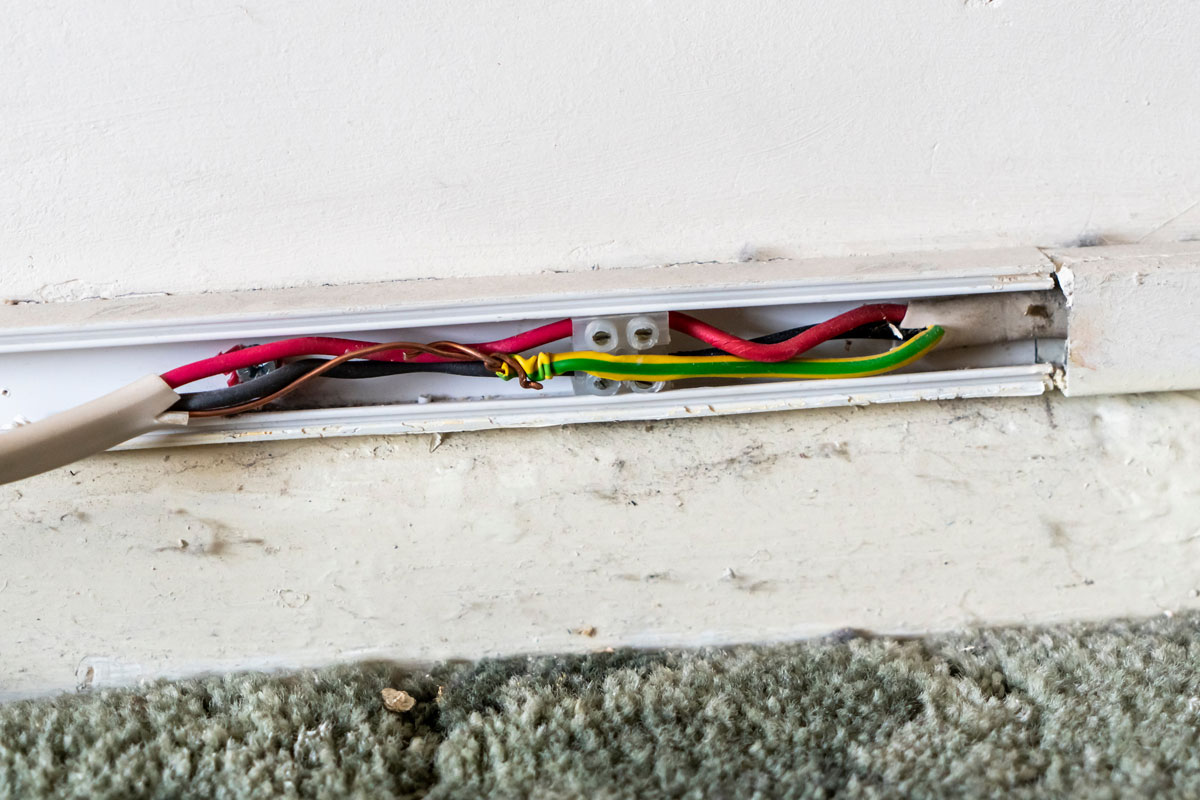
You'll need to check the wiring when the circuit breaker constantly trips. Aside from the problem loose wiring is causing to the circuit breaker, it can also start a fire and other electrical hazards.
You can fix the problem by tightening the screw holding the wire in place. Do not hesitate to replace the wires if you think the problem has already raptured the wire itself.
See this electrical wire on Amazon.
Broken Or Weak Capacitor
Capacitors, like the other components of an appliance, can experience problems. Over time, the fragile parts of it, such as the foil, electrolyte, and paper, can deteriorate and cause the capacitor to become weak.
One of the most common reasons capacitors break is the constant power surge caused by the unit's frequent on and off. Since its job is storing the unit's electricity needs, the breaker will keep tripping since the capacitor cannot hold the electric power.
Do not hesitate to call your HVAC technician if you suspect the problem is due to a faulty capacitor.
Faulty Breaker
The most apparent reason why a circuit breaker keeps on tripping is because of the breaker itself. The circuit breaker is like the system's gatekeeper, which manages and allows the flow of electricity so the unit can function.
A circuit breaker has a switch that allows you to turn the breaker on and off manually, but it also shuts off if the breaker senses that more electrical current is going through the system than it needs.
When the circuit breaker is broken, the switch can trip due to an inaccurate interpretation of the current flow. Unfortunately, faulty circuit breakers can no longer be salvaged. The best you can do to solve the problem is to replace it with a new one.
Although there are circuit breakers that look identical despite having different brands, avoid being tempted to replace the old one with a new breaker that is unsuitable for the main panel.
Most manufacturers design the electrical panel only to be compatible with a specific breaker type. Buying a new breaker without considering the old one or the panel is not a wise move since there are many things you have to look out for, such as the depths and frame of the breaker.
Also, we only recommend doing the job independently if you consider yourself very knowledgeable in electrical work.
The main power bars are exposed during installation and can cause electrical hazards when the person doing the job isn't fully equipped with the safety measures that must be taken.
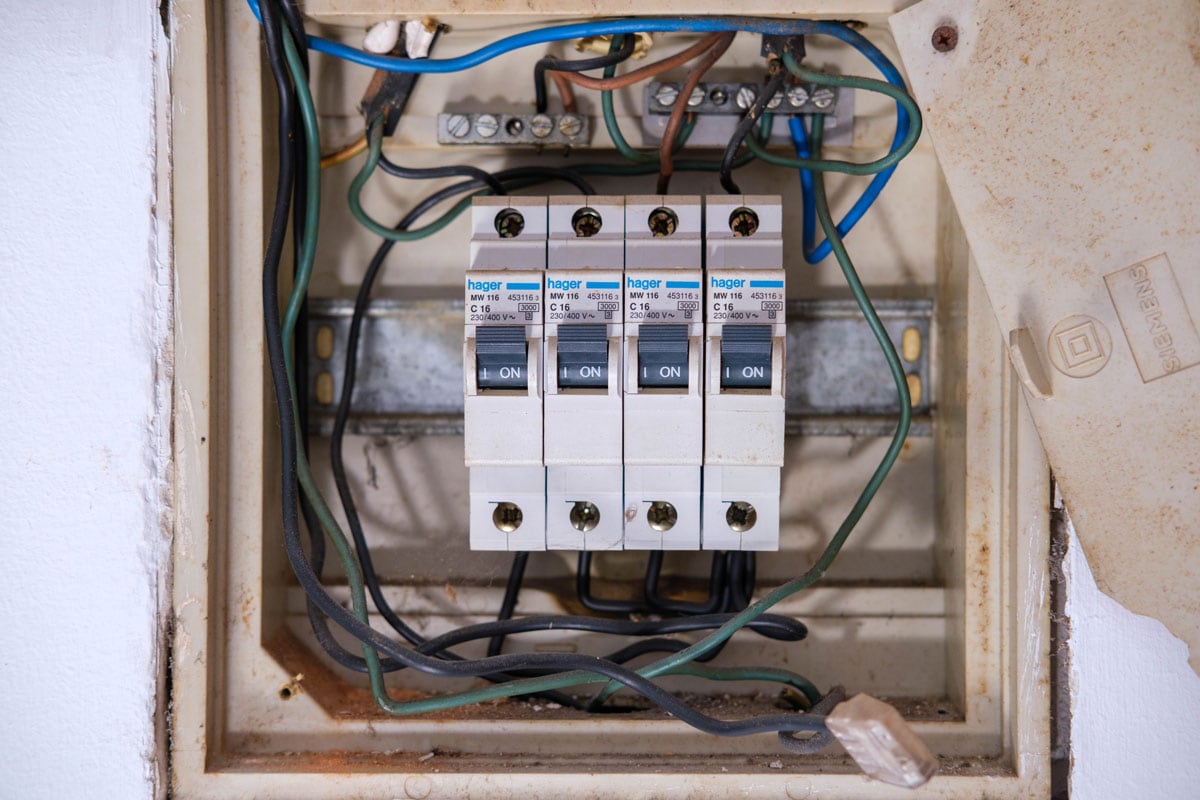
Overloading
Overloading occurs from plugging too many appliances in a single socket or when neutral and live wires come into direct contact. When overloading occurs in the system, the circuit breaker will trip to protect the unit from possible electrical hazards.
You can prevent the circuit breaker from tripping due to overloading by:
- Switching to energy-saving appliances
- Checking each appliance, you have to see the amount of electricity and voltage it requires to work
- Remove the plug from the socket when the appliance is not in use
- Doing regular wiring inspection
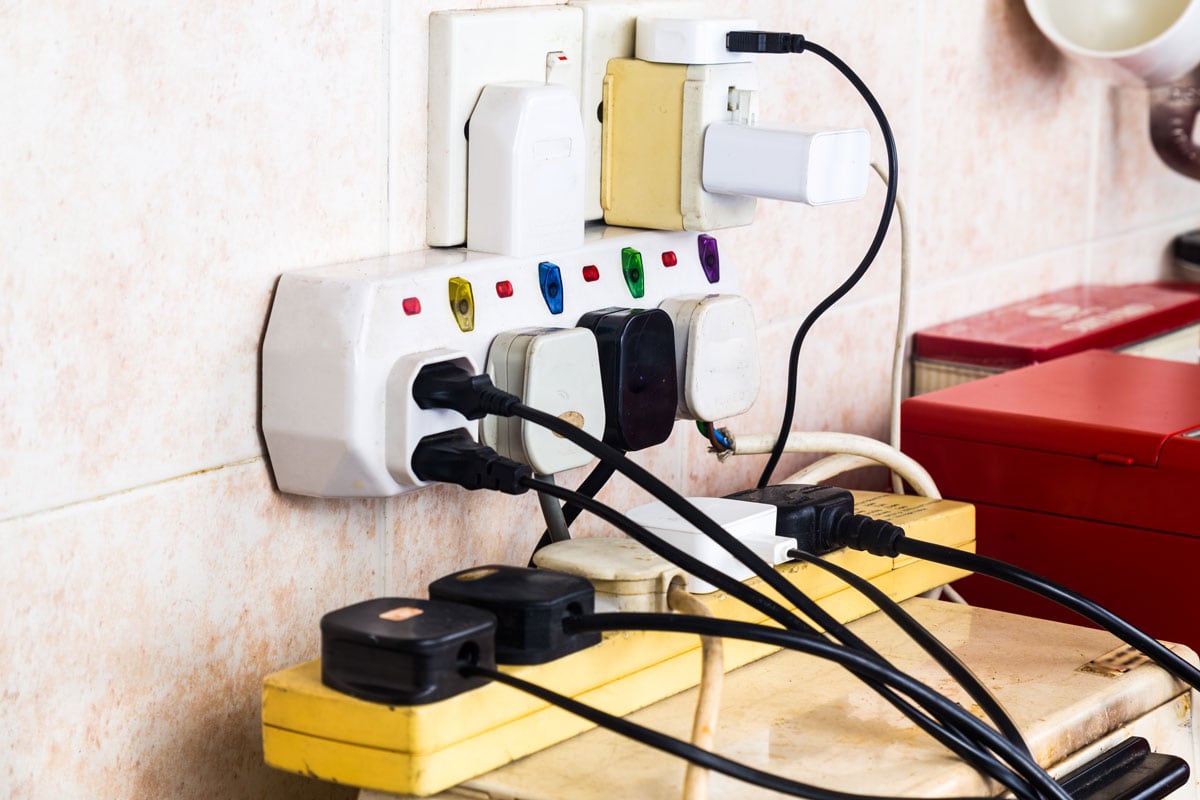
The Compressor Is Already Weak
The compressor is a fundamental mechanical part of the unit responsible for reducing the volume of gas to increase its pressure.
When the compressor weakens, it will seek more power from the system. This is why a tearing compressor can cause the circuit breaker to trip.
Since the compressor is considered the heart of the overall system, just like a circuit breaker, repairing it may not be possible, instead, you might need to replace it to prevent things from worsening.
Can I Use My APU While Driving?
Yes, you can use your APU while driving. Although the APU charges the truck's batteries, it is not dependent on the truck's system.
It has a power circuit. That's why the appliances you plug in your APU's sockets will work without draining the truck's batteries.
On the other hand, when running your appliances using the truck's batteries and not the APU, you can expect the batteries to drain out faster. This is why having an APU can save another day on the road.
Are APUs The Same As Portable Generators?
It may seem unclear, but an APU is not a portable generator. It is an independent engine that automatically charges the truck's batteries when you are not driving.
Unlike a portable generator, an APU is built to be mounted onto the truck or to make it a part of the vehicle. In addition, APUs can automatically pre-heat the truck's engine when needed. That's why auxiliary power units are becoming truckers' better choices because they can rely on them.
Click here to see this portable generator on Amazon.
In Closing
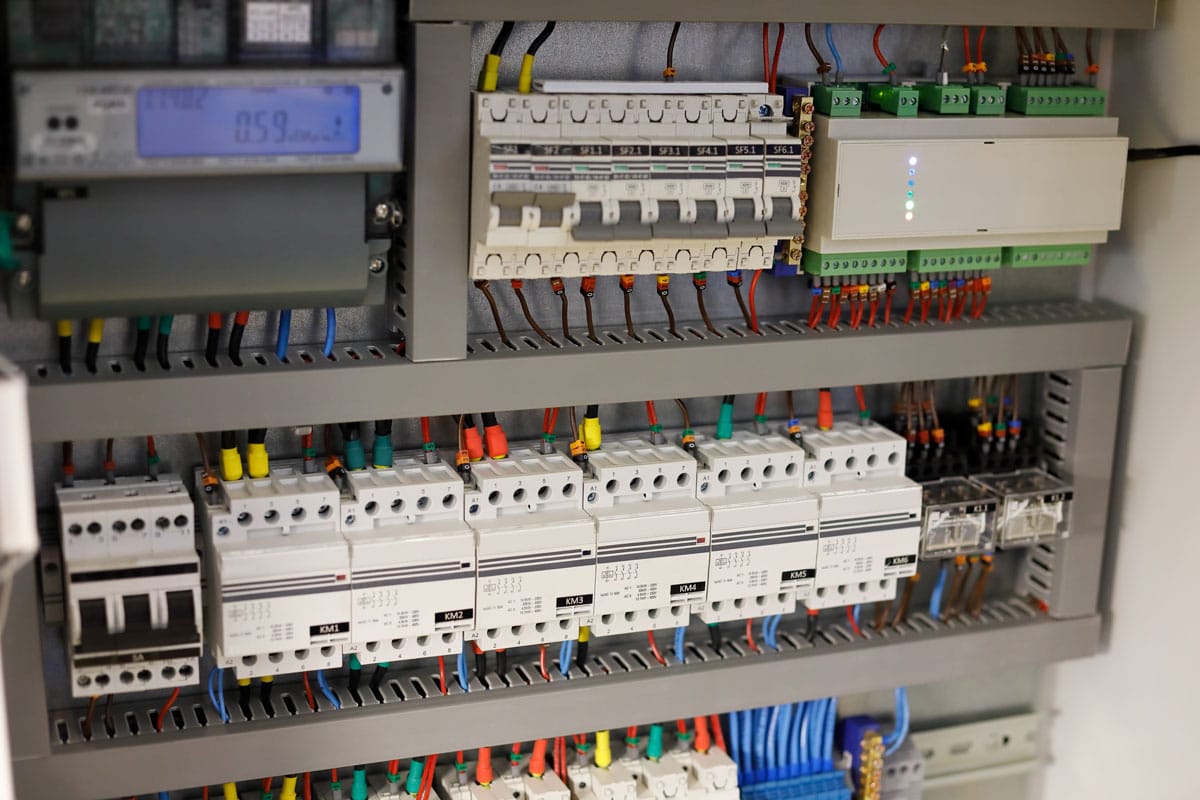
Carrier is a reputable brand, and its innovative APU is an excellent help to truckers. Always do a regular maintenance check on your APU to prevent problems that can cause the breaker to trip.
Start from the most obvious possible reason and move on to the more complicated ones until you solve the puzzle. Just remember to take precautionary measures when doing so.
Before you go, don't forget to check out these posts, too:
Carrier Furnace High Limit Switch Keeps Tripping – Why And What To Do?
Carrier Vs. York: Which HVAC Brand To Choose?
Mysa Thermostat Does Not Respond In Homekit – Why And What To Do?




As an avid reader of HVAC Seer, I must say this article on troubleshooting Carrier APU HVAC breaker tripping issues is incredibly helpful. Dealing with a tripping breaker can be frustrating, but understanding the underlying causes and following the suggested steps can save a lot of time and money.